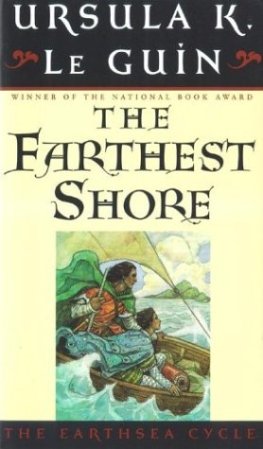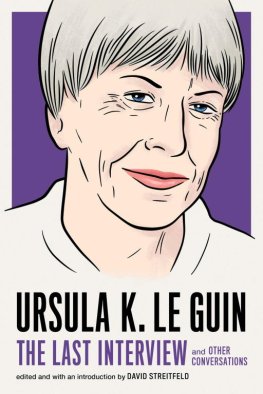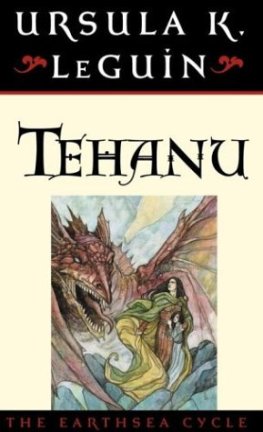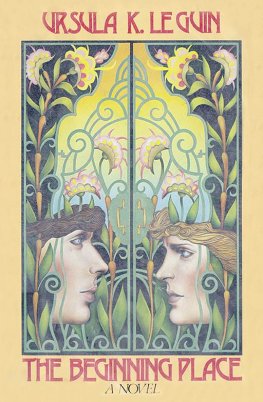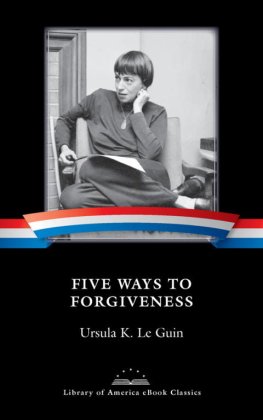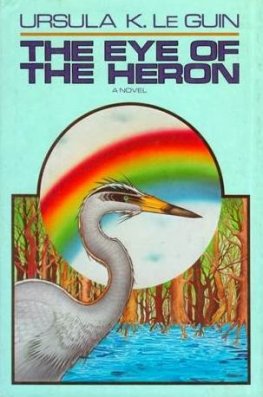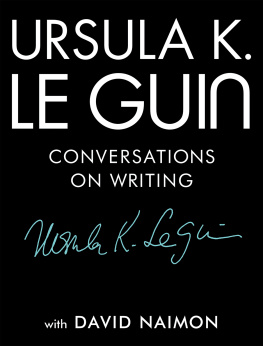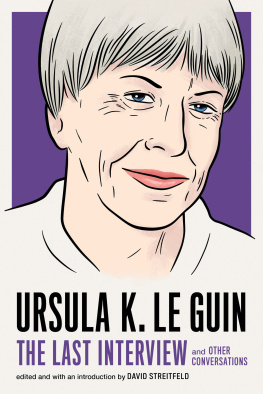Ursula Le Guin - Vaster Than Empires and More Slow
Here you can read online Ursula Le Guin - Vaster Than Empires and More Slow full text of the book (entire story) in english for free. Download pdf and epub, get meaning, cover and reviews about this ebook. genre: Science fiction. Description of the work, (preface) as well as reviews are available. Best literature library LitArk.com created for fans of good reading and offers a wide selection of genres:
Romance novel
Science fiction
Adventure
Detective
Science
History
Home and family
Prose
Art
Politics
Computer
Non-fiction
Religion
Business
Children
Humor
Choose a favorite category and find really read worthwhile books. Enjoy immersion in the world of imagination, feel the emotions of the characters or learn something new for yourself, make an fascinating discovery.

- Book:Vaster Than Empires and More Slow
- Author:
- Genre:
- Rating:3 / 5
- Favourites:Add to favourites
- Your mark:
- 60
- 1
- 2
- 3
- 4
- 5
Vaster Than Empires and More Slow: summary, description and annotation
We offer to read an annotation, description, summary or preface (depends on what the author of the book "Vaster Than Empires and More Slow" wrote himself). If you haven't found the necessary information about the book — write in the comments, we will try to find it.
Vaster Than Empires and More Slow — read online for free the complete book (whole text) full work
Below is the text of the book, divided by pages. System saving the place of the last page read, allows you to conveniently read the book "Vaster Than Empires and More Slow" online for free, without having to search again every time where you left off. Put a bookmark, and you can go to the page where you finished reading at any time.
Font size:
Interval:
Bookmark:
Ursula K. Le Guin
Foreword for "The Direction of the Road" and "Vaster Than Empires And More Slow"
The relation of our species to plant life is one of total dependence and total exploitationthe relation of an infant to its mother. Without plants the earth would have remained bare rock and water; without plant respiration we'd suffocate promptly; without vegetable food (firsthand or, as in meat, secondhand) we starve. There is no other food.
Deo, Demeter, the grain-mother, and her daughter/self Kore the Maiden called Persephone, raped by the Godfather's brother and buried to rise again, are myth-images of this relationship, recognized by 'primitive'farmers as fundamental. It is still fundamental, but can be completely ignored by a modem city dweller whose actual experience of plants is limited to florists' daisies and supermarket beans. The ignorance of the urban poor is blameless; the arrogant ignorance of the urban educated, particularly those in government, is inexcusable. There is no excuse for deforestation, for acid rain, or for the hunger of two-thirds of the children of the earth.
A very savvy genre, science fiction often acknowledges our plant-dependencefilling a room in the spaceship with hydro-panic tanks, or 'terraforming1the new planet so the colonists can raise grainbut with some notable exceptions (such as the filmSilent Running), science fiction lacks much real interest in whafs green. The absolute passivity of plants, along with their absolute resistance to being replaced by an industrial-age substitute (we can have iron horses, steel eagles, mechanical brains, but robot wheat? Plastic spinach? If you believe in that you must eat the little green hedge on your sushi plate) probably makes them terminally uninteresting to the metal-minded and those to whom technology is not a way of living in the world, but a way of defeating it.
All the same, both the stories that follow are quite conventional science fiction. "The Direction of the Road" is yet another point-of-view shift, but with the attention focused on Relativity. 'Vaster" is a story about boldly going where, etc. In it I was, in part, trying to talk about the obscure fear, calledpanic, which many of us feel when alone in wilderness. I have lost the trail on an Oregon mountain in logged-over second-growth forest, where my individual relation to the trees and undergrowth and soil and my relative position in their earth-and-ocean-wide realm, as an animal and as a human, were, you might say, brought home to mebut then, who's afraid of a goddam tree? We can wipe 'em all outin a century by clearcutting in a generation by pollution, in the twinkling of an eye...
Vaster Than Empires and More Slow
IT WAS ONLY DURING THE EARLIEST DECADES of the League that the Earth sent ships out on the enormously long voyages, beyond the pale, over the stars and far away. They were seeking for worlds which had not been seeded or settled by the Founders on Hain, truly alien worlds. All the Known Worlds went back to the Hainish Origin, and the Terrans, having been not only founded but salvaged by the Hainish, resented this. They wanted to get away from the family. They wanted to find somebody new. The Hainish, like tiresomely understanding parents, supported their explorations, and contributed ships and volunteers, as did several other worlds of the League.
All these volunteers to the Extreme Survey crews shared one peculiarity: they were of unsound mind.
What sane person, after all, would go out to collect information that would not be received for five or ten centuries? Cosmic mass interference had not yet been eliminated from the operation of the ansible, and so instantaneous communication was reliable only within a range of 120 lightyears. The explorers would be quite isolated. And of course they had no idea what they might come back to, if they came back. No normal human being who had experienced time-slippage of even a few decades between League worlds would volunteer for a round trip of centuries. The Surveyors were escapists, misfits. They were nuts.
Ten of them climbed aboard the ferry at Smeming Port, and made varyingly inept attempts to get to know one another during the three days the ferry took getting to their ship, Gum. Gum is a Cetian nickname, on the order of Baby or Pet. There were two Cetians on the team, two Hainishmen, one Beldene, and five Terrans; the Cetian-built ship was chartered by the Government of Earth. Her motley crew came aboard wriggling through the coupling tube one by one like apprehensive spermatozoa trying to fertilize the universe. The ferry left, and the navigator put Gum underway. She flitted for some hours on the edge of space a few hundred million miles from Smeming Port, and then abruptly vanished.
When, after 10 hours 29 minutes, or 256 years, Gum reappeared in normal space, she was supposed to be in the vicinity of Star KG-E-96651. Sure enough, there was the gold pinhead of the star. Somewhere within a four-hundred-million-kilometer sphere there was also a greenish planet, World 4470, as charted by a Cetian mapmaker. The ship now had to find the planet. This was not quite so easy as it might sound, given a four-hundred-million-kilometer haystack. And Gum couldn't bat about in planetary space at near lightspeed; if she did, she and Star KG-E-96651 and World 4470 might all end up going bang She had to creep, using rocket propulsion, at a few hundred thousand miles an hour. The Mathematician/Navigator, Asnanifoil, knew pretty well where the planet ought to be, and thought they might raise it within ten E-days. Meanwhile the members of the Survey team got to know one another still better.
"I can't stand him," said Porlock, the Hard Scientist (chemistry, plus physics, astronomy, geology, etc.), and little blobs of spittle appeared on his mustache. "The man is insane. I can't imagine why he was passed as fit to join a Survey team, unless this is a deliberate experiment in non-compatibility, planned by the Authority, with us as guinea pigs."
"We generally use hamsters and Hainish gholes," said Mannon, the Soft Scientist (psychology, plus psychiatry, anthropology, ecology, etc.), politely; he was one of the Hainishmen. "Instead of guinea pigs. Well, you know, Mr. Osden is really a very rare case. In fact, he's the first fully cured case of Render's Syndromea variety of infantile autism which was thought to be incurable. The great Ter-ran analyst Hammergeld reasoned that the cause of the autistic condition in this case is a supernormal empathic capacity, and developed an appropriate treatment Mr. Osden is the first patient to undergo that treatment, in fact he lived with Dr. Hammergeld until he was eighteen. The therapy was completely successful."
"Successful?"
"Why, yes. He certainly is not autistic."
"No, he's intolerable!"
"Well, you see," said Mannon, gazing mildly at the saliva-flecks on Porlock's mustache, "the normal defensive-aggressive reaction between strangers meetinglet's say you and Mr. Osden just for exampleis something you're scarcely aware of; habit, manners, inattention get you past it; you Ve learned to ignore it, to the point where you might even deny it exists. However, Mr. Osden, being an empath, feels it Feels his feelings, and yours, and is hard put to say which is which. Let's say that there's a normal element of hostility towards any stranger in your emotional reaction to him when you meet him, plus a spontaneous dislike of his looks, or clothes, or handshakeit doesn't matter what He feels that dislike. As his autistic defense has been unlearned, he resorts to an aggressive-defense mechanism, a response in kind to the aggression which you have unwittingly projected onto him." Mannon went on for quite a long time.
"Nothing gives a man the right to be such a bastard," Porlock said.
"He can't tune us out?" asked Harfex, the Biologist, another Hainishman.
Font size:
Interval:
Bookmark:
Similar books «Vaster Than Empires and More Slow»
Look at similar books to Vaster Than Empires and More Slow. We have selected literature similar in name and meaning in the hope of providing readers with more options to find new, interesting, not yet read works.
Discussion, reviews of the book Vaster Than Empires and More Slow and just readers' own opinions. Leave your comments, write what you think about the work, its meaning or the main characters. Specify what exactly you liked and what you didn't like, and why you think so.

